Branson, MO
Aaron Ketchall (2007) traces the advent of Branson as an vacation destination to the arrival of Harold Bell Wright in Springfield, MO in early 1896 when he was suffering from ill health and sought restoration in the Ozark hills. His 1907 book Shepherd of the Hills was the first of a sequence of highly-popular, melodramatic, fictional works that embraced "rural sentimentality, wholesome family values, and simple moral lessons grounded in Christian precepts." This literary codification of the Ozarks as a place to seek physical and spiritual restoration in escape from modernity was (ironically) the religious and ethical foundation for a century of commercial development of Branson into an internationally-known tourist destination.
The modern era can probably be said to have started in 1960 with the opening of Silver Dollar City, and the subsequent growth of local performing acts through the 1960s and 1970s. Mainstream commercial country acts like Roy Clark and Boxcar Willie arrived in 1980s, followed by non-country performers like Andy Williams and Wayne Newton in the 1990s. But while there came to be numerous non-country offerings on Branson's stages, the listings were still dominated by productions featuring "religiously tinged country music, a plethora of gospel numbers, spiritual and nostalgic renderings of an antimodern past, deference to civil religiosity, and 'family values' rhetoric derived from theological perspectives" (pp 86).
When my mother and I first visited Branson in May of 2014, our pick was Jonah an extravagant, multi-million-dollar musical adaptation of the biblical story. While visually stunning, the evangelical objectives of the production, along with the limited amount of detail actually provided in the scriptural source material, constrained the writers to rigid, often didactic dialogue and plot structure. The program featured no names or information at all on the writers or (likely non-union) performers, presumably to avoid any distraction from the biblical origin of the plot, and/or the corporate branding of the production. The curtain call was replaced by an altar call, giving the audience no opportunity to thank (or reify) the performers. Sight and Sound (tm) as the McDonalds (tm) of theatre.
Aaron K. Ketchell's 2006 Holy Hills of the Ozarks: Religion and Tourism in Branson, Missouri is an excellent critical history of Branson for those with an interest in this unique geography of capitalist Americana.

Branson hills

Ferris wheel
36.6401, -93.2572

W 76 Country Boulevard
36.6401, -93.2572
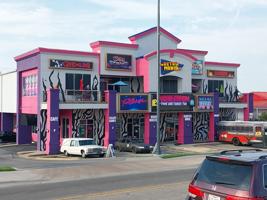
Retromania
36.6382, -93.2817

Spash Country
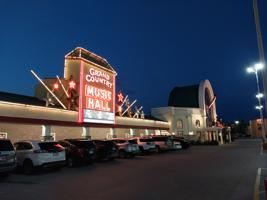
Grand Country Music Hall
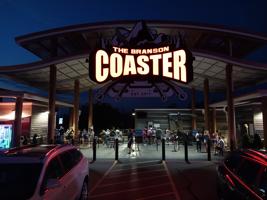
Branson Coaster
36.64129465570513, -93.26051948198639
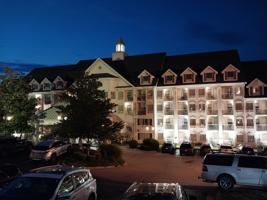
Hotel Grand Victorian
36.64194030432356, -93.26275
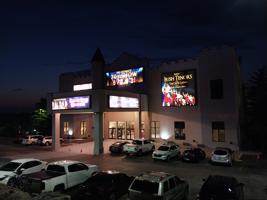
King's Castle Theatre
36.64017984616747, -93.267966513

Boardwalk Inn
36.63912227797447, -93.26932412806185
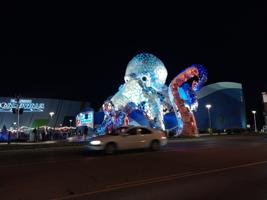
Aquarium at the Boardwalk
36.6383131, -93.26909346
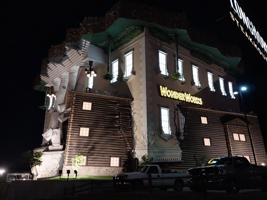
WonderWorks
36.6385639222731, -93.27159338221357
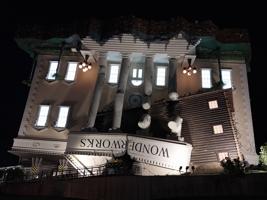
WonderWorks
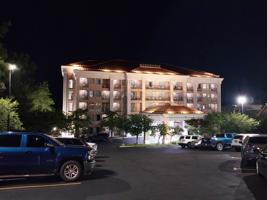
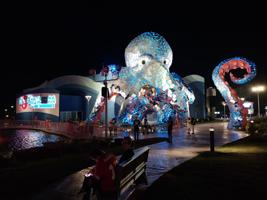
Aquarium at the Boardwalk
36.6383131, -93.26909346
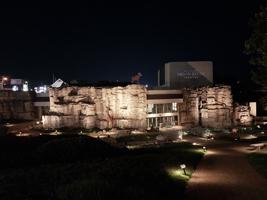
Andy William's Moon River Theatre
36.639953839966196, -93.26562779718803
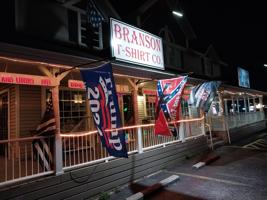
Branson T-Shirt Co.
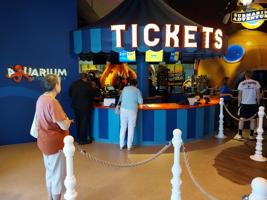
Aquarium at the Boardwalk

Aquarium at the Boardwalk

Aquarium at the Boardwalk

Aquarium at the Boardwalk
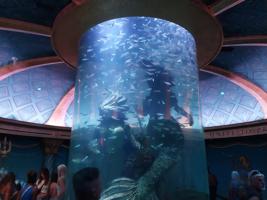
Aquarium at the Boardwalk

Starfish
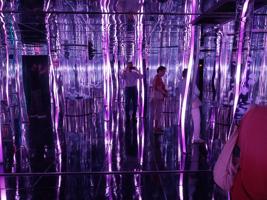
Jellyfish

Rays
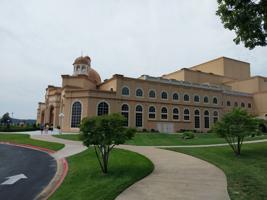
Sight + Sound
36.639953839966196, -93.26562779718803
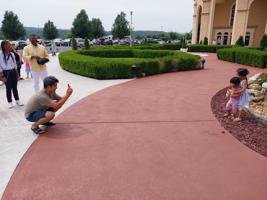
Family
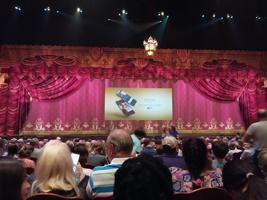
Curtain
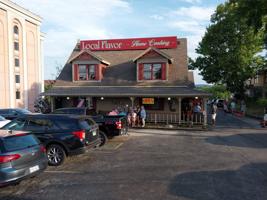
Local Flavor
36.637730008632246, -93.27135257545022
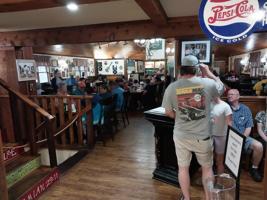
Local Flower

Chicken Fried Steak
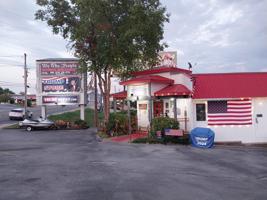
The Trump Store
36.64234804659712, -93.25422677544995
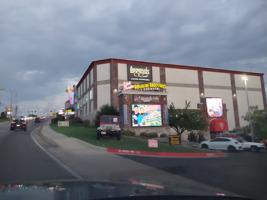
Dick Clark's American Bandstand Theatre
36.6414, -93.2473
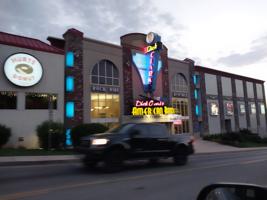
Dick Clark's American Bandstand Theatre
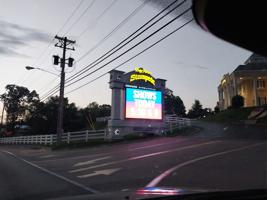
Dolly Parton's Stampede
36.6413666637, -93.2473603204
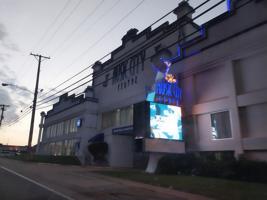
Music City Centre
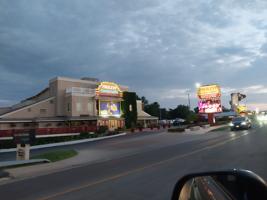
Presley's Country Jubilee
36.63773371, -93.274697394
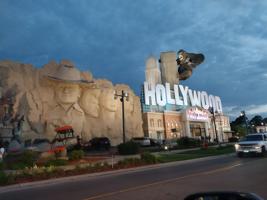
Hollywood Wax Museum
36.6377337166, -93.27469739454
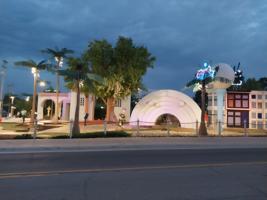
Shoot for the Stars mini golf
36.637806, -93.27791
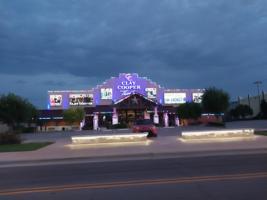
Clay Cooper Theatre
36.63733434078, -93.27966198339
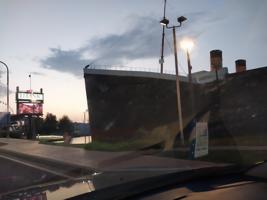
Titanic
36.63733434078074, -93.27966198339249
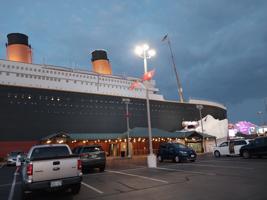
Titanic
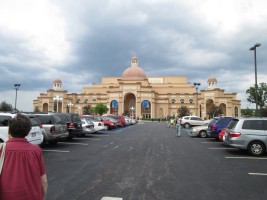
Sight+Sound
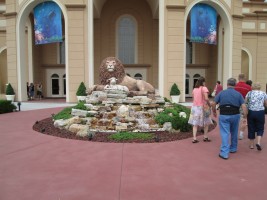
Sight+Sound
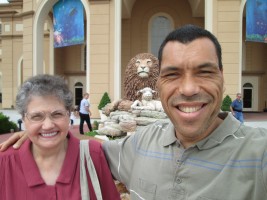
Mom and Me
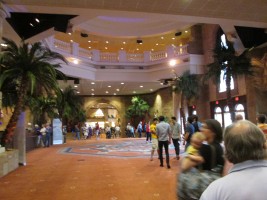
Sight+Sound
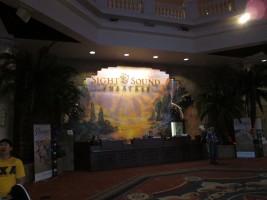
Sight+Sound
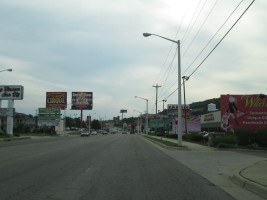
W 76 Country Boulevard
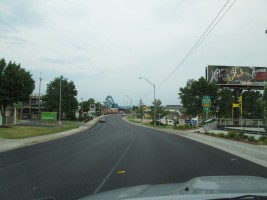
W 76 Country Boulevard
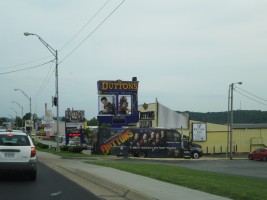
Duttons Family Theatre
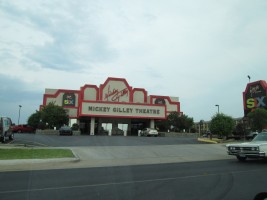
Mickey Gilley Theatre
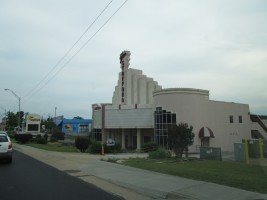
Jim Stafford Theatre
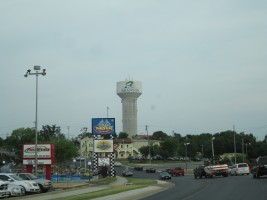
Water tower
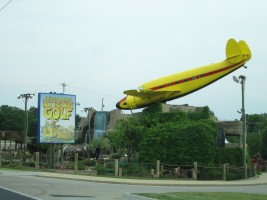
Professor Hacker's Lost Treasure Golf
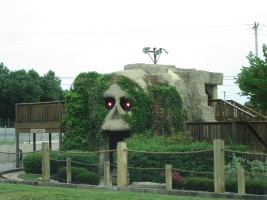
Professor Hacker's Lost Treasure Golf
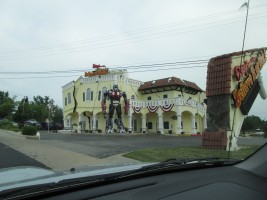
Ripley's Believe it or Not
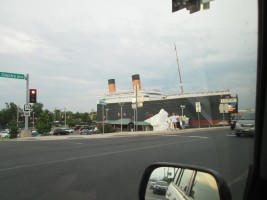
Titanic
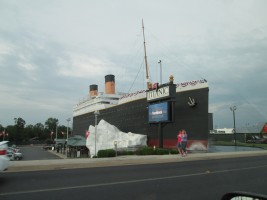
Titanic
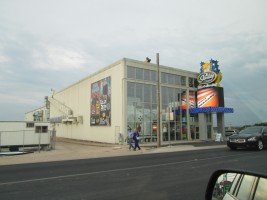
Starlite Theatre
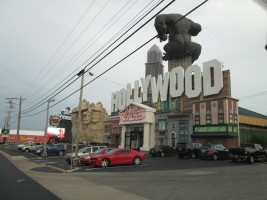
Hollywood Wax Museum
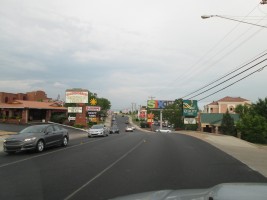
Motor Inns
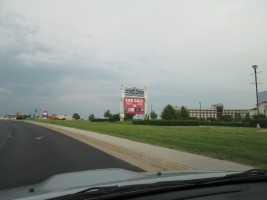
The Grand Palace - for sale
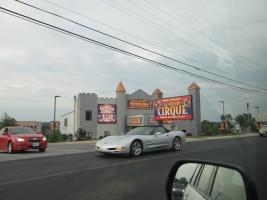
Le Grand Cirque
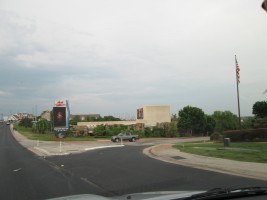
Andy Williams Moon River Theatre
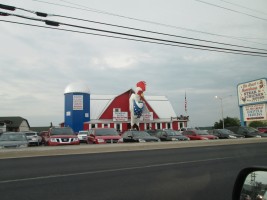
The Great American Steak and Chicken House
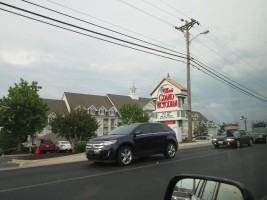
Hotel Grand Victorian
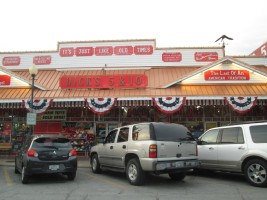
Dick's Five and Ten
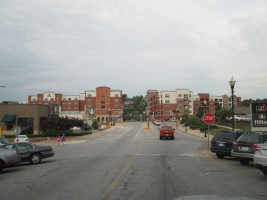
Railroad tracks
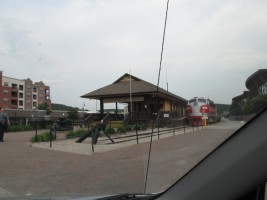
Branson Scenic Railway
36.6437790592525, -93.21497469206155

Branson Scenic Railway
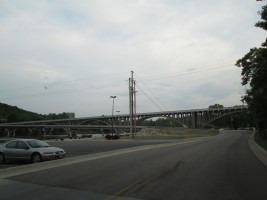
Veteran's Boulevard Bridge over the White River
36.63594141261612, -93.2150614612367
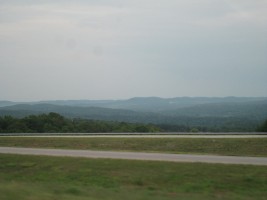
Highway 65
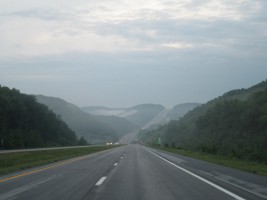
Highway 65